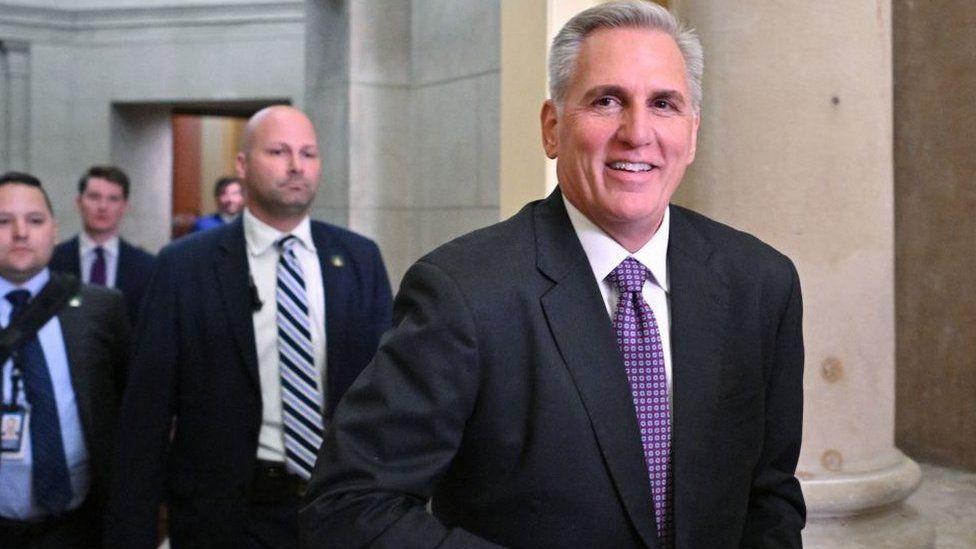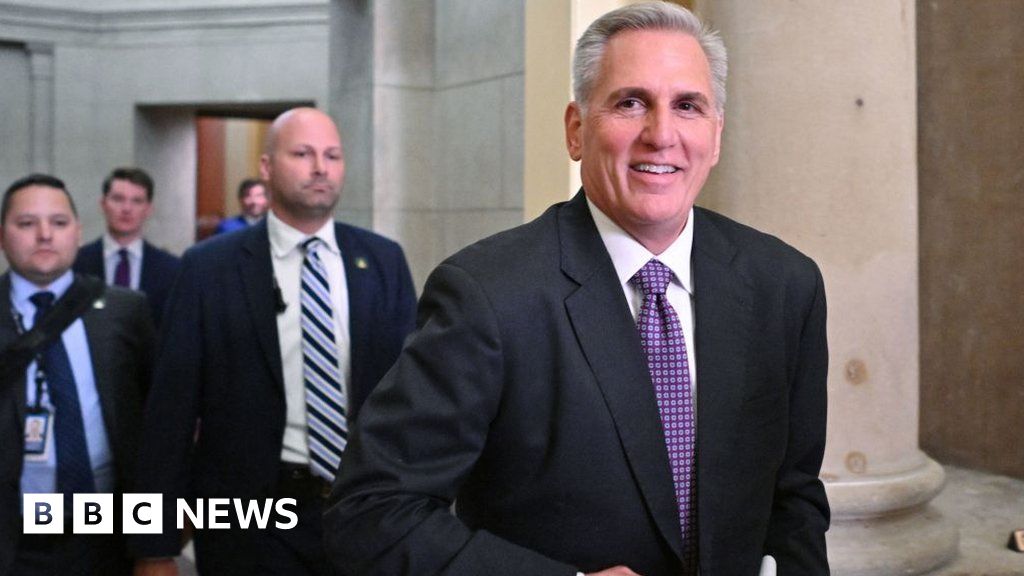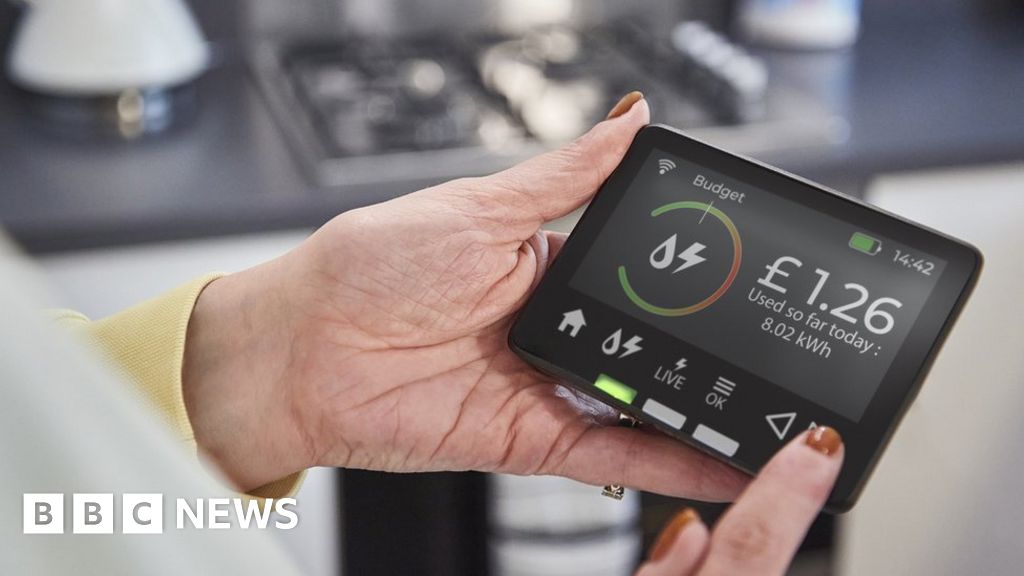
US House Speaker Kevin McCarthy celebrated the bill’s passage
By Sam Cabral
BBC News, Washington
The House of Representatives has approved a deal to allow the US to borrow more money, days before the world’s biggest economy is due to start defaulting on its debt.
The measure passed the chamber by a vote of 314-117, with defections on both sides of the aisle.
The US Senate must vote on the bill later this week before President Joe Biden can sign it into law.
The government is forecast to hit its borrowing limit on Monday 5 June.
That has left little margin for error as lawmakers race to avoid the US defaulting on its $31.4tn (£25tn) debt, which underpins the global financial system.
On Wednesday evening, 165 Democrats joined 149 Republicans in approving the 99-page bill to raise the debt ceiling, allowing it to pass the House by the required simple majority.
With Republicans in control of the lower chamber of Congress and Democrats holding sway in the upper chamber and White House, a deal had proven elusive for weeks until President Biden and House Speaker Kevin McCarthy inked a bipartisan compromise over the weekend.
A triumph for Speaker McCarthy
Kevin McCarthy was able to push Joe Biden and reluctant Democrats to the negotiating table by passing a bill that raised the debt limit but included a laundry list of conservative priorities.
Then he was able to hold his party together as he struck a less-ambitious deal with the president that modestly trimmed the growth in federal spending and added some new conditions on aid for low-income Americans.
That wasn’t enough for a group of hard-line conservatives, some of whom hinted they would unseat Mr McCarthy and force a new election for Speaker.
But by Wednesday, even the hottest of firebrands were backing away from their rhetoric. And when it came time to vote, a majority of Republicans approved Mr McCarthy’s deal.
While the hard-liners may grumble, it is clear they don’t have anywhere near the level of support they would need to replace Mr McCarthy – or even any idea who to replace him with.
The agreement suspends the debt ceiling until 1 January 2025.
The legislation would result in $1.5tn in savings over a decade, the non-partisan Congressional Budget Office said on Tuesday.
But the bill’s passage had been in jeopardy after lawmakers from both parties voiced opposition.
Ultra-conservative Republicans complained they had secured too few concessions in exchange for raising the debt limit.
Watch: The debt ceiling explained – in under 90 seconds
Democrats objected to provisions raising work requirements for Americans on federal food aid, and restarting student loan repayments.
Emanuel Cleaver, a Missouri Democrat, said he would vote for the bill, even though he viewed it as the “second serving of Satan’s sandwiches”.
South Carolina Republican Nancy Mace, who pledged to vote no, told the BBC her party “didn’t get anything out of this”.
Image source, Getty Images
Chip Roy of Texas vowed a reckoning over the bill
Republicans control the House by a narrow 222-213 majority, but Speaker McCarthy was able to push the bill over the line with support from political centrists on both sides of the aisle.
He framed the package as “just a small step” towards controlling the US debt.
The bill is not yet assured of passage. It now heads to the Senate, where some combination of Democratic and Republican votes may again be needed.
One conservative Republican, Mike Lee of Utah, has already threatened to use “every procedural tool” to stall consideration of the deal.
Left-wing Senator Bernie Sanders also came out against the bill on Wednesday, saying he cannot “in good conscience” support it.
Both Democratic and Republican leaders in the Senate are working to ensure that a bill reaches Mr Biden’s desk for his signature this weekend before a default can occur.
The last time the US came this close to overshooting its debt ceiling, in 2011, the credit agency Standard & Poor’s downgraded the country’s rating, a move that has yet to be reversed.
Before Wednesday’s vote, US stock markets ended the day down a little, with the Dow closing 0.4% lower, while the S&P and Nasdaq both dipped by 0.6%.
With Nomia Iqbal and Jessica Parker reporting from Capitol Hill










